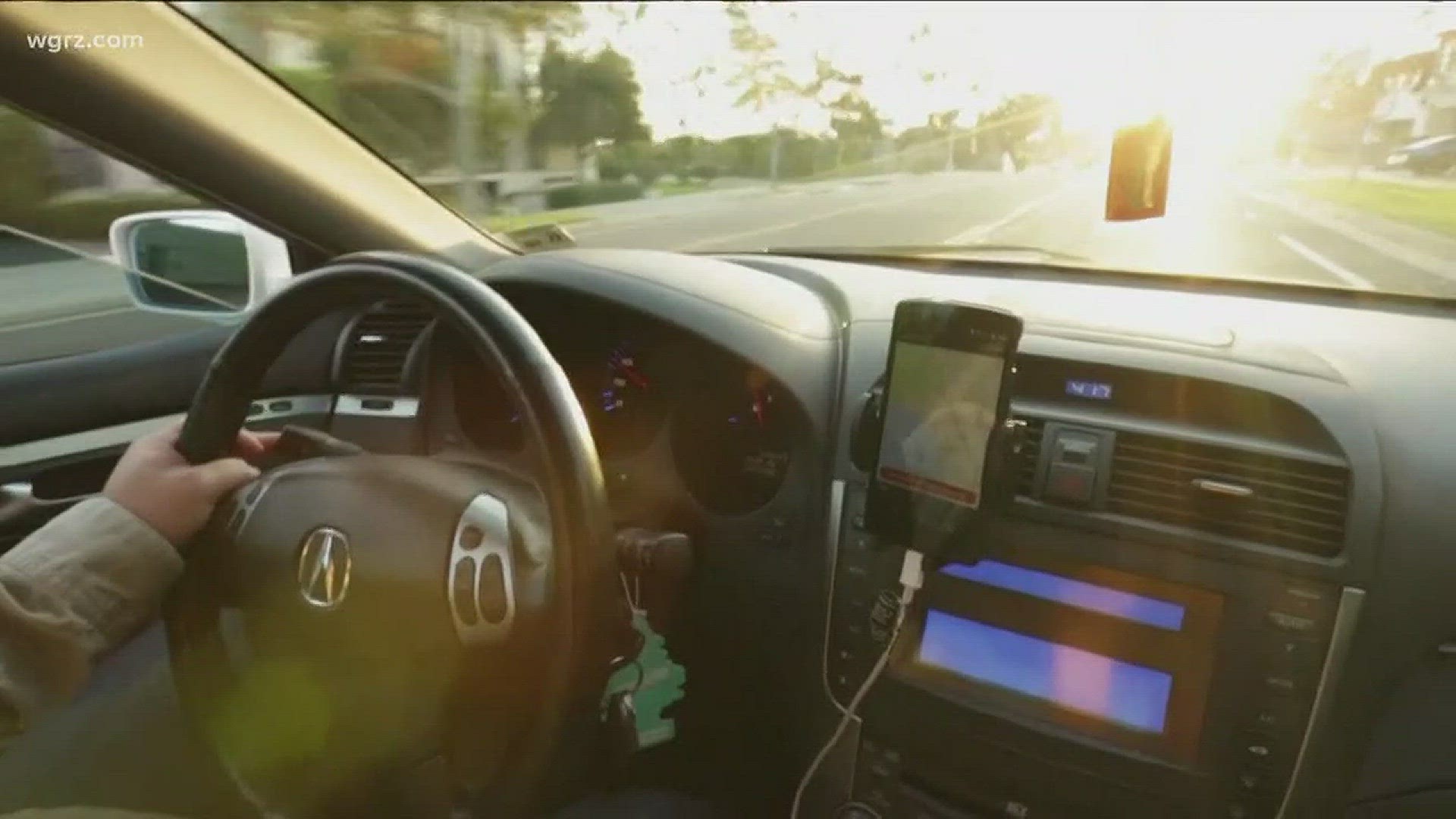BUFFALO, N.Y. -- If Assembly Democrats get their way in budget negotiations, you'll have to pay an extra dollar every time you hop into an Uber or Lyft in upstate New York.
The proposed $1 surcharge, which would increase to $2.75 per ride in Manhattan, would help fund infrastructure improvements across the state. Assembly Speaker Carl Heastie (D-Bronx) unveiled the idea last week as a part of his $170 billion spending proposal, known in budget discussions as the "one-house" plan.
Assembly Democrats estimate the tax would help raise $48 million for upstate road, bridge and transit improvements.
"These companies need safe roads and bridges to transport their customers," Heastie's spokesperson said, "and this proposal drives much needed funding to support those needs."
It remains unclear, however, whether the full legislature will ever support the modest tax increase on ride-sharing services.
The Republican-led State Senate did not include the proposal in its own one-house budget, nor did Gov. Cuomo in his executive budget. With the budget due in two weeks, that may pose a challenge for Assembly Democrats as they try to sell their plan to the general public.
Senate Republicans will certainly put up a fight before the April deadline. They have been especially vocal in their opposition to the additional ride-sharing tax, including Sen. Michael Ranzenhofer (R-Amherst).
"I think it's ridiculous. I don't support it at all," Ranzenhofer said in a phone interview from Albany. "As far as I'm concerned, it's dead on arrival. I don't think there's much support for it among upstate representatives. I don't think anyone in the Senate supports it, so I don't see it going very far."
The state already imposes a surcharge of four percent on Uber and Lyft rides outside of New York City, in order to generate revenue for the general fund.
In Western New York, it's hard to tell whether the delegation will support yet another tax, which is largely driven by Assembly leadership downstate.
A spokesperson for Assemblyman Sean Ryan (D-Buffalo) said his office is still evaluating the proposal. Last week, Ryan and two other Democrats proposed using money from the existing four-percent ride-sharing tax to help fund NFTA Metro upgrades.
In a statement, Sen. Tim Kennedy (D-Buffalo) said he certainly recognizes the need for infrastructure funding, but he would "hesitate to endorse a solution that passes yet another cost on to taxpayers." He said he's still waiting for the results of a New York State Department of Transportation study, which examined the state funding formula for transit services.
The proposal from Assembly Democrats would funnel the surcharge revenue from downstate rides to the Metropolitan Transportation Authority in New York City. For upstate rides, part of the surcharge revenue will specifically help fund local bridge and road improvements. Another portion of the surcharge money will go to a general operating fund.
Uber's leadership, however, does not believe their customers should have to foot the bill for infrastructure upgrades. Echoing the state's Republicans, Uber spokesperson Alix Anfang said in a statement that "the new combined ride-sharing taxes would be the highest in the country, and yet another new tax for already overtaxed upstate New Yorkers."
A spokesperson for Lyft did not specifically criticize the proposal for an extra surcharge. In a carefully-worded statement to 2 On Your Side, the company emphasized that it is "committed to ensuring New Yorkers can move around conveniently and affordably."
"And we recognize that's possible through a spectrum of transportation options, including public transit and on-demand service. We believe that any effort put forward to improve New York's transportation ecosystem must not only be holistic but also ensure that all transportation remains affordable," according to the statement.

